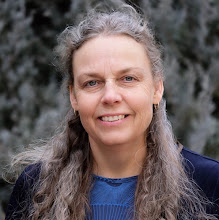The greatest book I've ever read
I think I would have to say The Other Side of Eden: Hunters, Farmers and the Shaping of the World, by Hugh Brody is the one. It's lyrical, impassioned, and a profound statement about our humanity. The book is an expression of his life's work as an anthropologist and filmmaker working among the indigenous people of the Canadian and Alaskan Arctic in their struggles to have their culture and rights recognized. The book makes a strong case that when cultures are destroyed, when there are no more people living as hunters and foragers and thinking in those ways, we will have lost an important part of what it means to be human.
He tells a funny story to illustrate the difference between how Inuit hunter-gatherers think, and how people from the modern industrial world think. If you’re living as a hunter and forager, your sense of what a day is would of course depend strongly on the sun, when it rises and sets. You would choose what is an appropriate activity for a particular time based on these natural cycles. In the summer, the days that far north are of course very long, and the midday sun is bright. People prefer the slightly cooler light of midnight for a lot of their activities. So the Inuit children stay up all night to play, then go home to breakfast, and then to bed. In Pond Inlet, the Canadian government school runs during the summer months, and of course holds classes at regular school hours. It is a product of the industrialized world, where things are done at particular times on the clock, natural cycles be damned. The children are too sleepy to either go to school or to stay awake in school, having been up all night in the light. The teachers met with the parents to discuss the problem. They all agreed that it was important that the children should go to bed early, so that they could go to school. Good, the teachers said, then you’ll make the children go to bed? No, said the parents, we couldn’t do that. You have to do that, you run the school. And so they each went their ways, puzzled by the others’ unwillingness to take responsibility, and nothing was done.
Brody writes of these far northern hunter-gatherers:
“The Inuit way is without authoritarianism; parents are inclined to trust children to know what they need. Individuals have to be left to make decisions for themselves; and children are individuals just as adults are.... This belief is fundamental to the Inuit way of being in the world, to their culture, and to hunter-gatherer cultures more generally. ... The needs the school was supposed to meet might be a matter of agreement, with Inuit and teachers of one mind about the importance of southern kinds of education; but the imposition of the routines and authority of school was still alien. To suggest that parents should impose authority ... was not acceptable to the parents in Pond Inlet. If there was a clash of schedules, let the Qallunat, the southerners, in whom these clashes originated and in whose role was their orchestration, do the job. Qallunat had designed, built, and even furnished Inuit homes, so why should they not go there and organize bedtime too?...The tenacity with which Inuit held on to the core of their culture was both startling and delicious.... It showed what it means for people to insist upon that which defines them. Refusing to force bedtime on their children in an arctic June sustained a heartland of Inuit life.” p. 29.
Hugh Brody, 2000, The Other Side of Eden: Hunters, Farmers and the Shaping of the World, NY: North Point Press.
(A division of Farrar, Strauss & Giroux)


0 Comments:
Post a Comment
<< Home